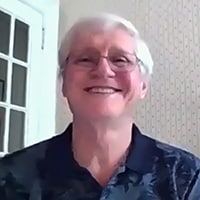This transcript has been edited for clarity.
Hello. It's Mark Kris, from Memorial Sloan Kettering Cancer Center, reporting today on a really terrific article written by April Choi, MD, published in March 2023 in the Journal of Clinical Oncology. Dr Choi tells a great anecdote that has many lessons for all of us taking care of patients that come from different cultural backgrounds.
She recounts the story of a Korean gentleman who was in the hospital and being prepared for surgery, and as part of the preparation, he was sent to the radiology department. In the radiology department, after he completed his test, a technician said to him, "You can go now."
He interpreted that to mean he could go home, so he went back to his room, took off his gown, put on his street clothes, and was walking out the door, to the great chagrin of the nursing staff on the floor who thought he was leaving against medical advice. He had erroneously thought that, when he was told he was good to go, with his limited language skills, it was time for him to go home.
Dr Choi, a Korean American who spoke Korean, was able to clarify the situation. By the way, the patient went on to have a very successful cancer treatment.
Dr Choi pointed out some important things that we all need to consider when we're taking care of patients from different cultures and backgrounds. First is the phenomenon of someone who speaks English just good enough. Folks give us native English speakers the idea that they understand everything we say, but they really don't.
They have what they call a smile-and-nod approach to things, and we think that they understand clearly, but they don't, as the story from Dr Choi relates. Sometimes the language barrier is hidden. Folks want to say that they can speak adequate English. They want to assimilate like we and all of our ancestors did when we first came to this country, but they don't really understand, and we have to be careful of that. It goes not only for language but for other issues as well.
We need to be very careful, particularly when we're having very technical, complex discussions and discussions that are very emotional. We really need to make sure that they understand the impact of what we're saying to them.
The other point that Dr Choi raises is the truth that healthcare situations, no matter what background or culture we're from, are a new world. We, in essence, are immigrants there. I just had a recent experience. I'm an oncologist and I live in the oncology world, but I was just dragged into the nephrology world with one brother-in-law and the cardiology world with another brother-in-law.
Both of those worlds are not where I spend my time. It's a different culture and different facts that need to be understood. Even for somebody who thinks they know about many things, it's all different to us — and I'm a healthcare professional. For somebody who doesn't have healthcare training, that's even more of a problem. We really need to think about the fact that we're immigrants in healthcare.
Another thing to think about: Remember that people get advice from disparate sources, including friends, relatives, and Google, and not all of that advice is correct. More often than not, not all of that advice really applies to them. We really need to take that into account. People get into this new world of oncology not really having the best information.
The other thing that Dr Choi mentions is that we need to pay more attention to what gives us comfort. I'm going to call these the three F's: family, friends, and food. It's important, particularly when we meet people for the first time, to think about those things that will give them comfort, and importantly, to see if they have access to them. It's also important to try to know where the deficiencies might be and to do whatever we can to alleviate those issues.
I commend Dr Choi; she published a great article. It's well written and there are many important messages there. It's a good reminder for all of us to listen more and be very attentive to patients that don't have as deep an understanding of the English language; who want to appear like they have a better understanding, for many good reasons; and lastly, who come from different cultures and get comfort in different ways. We need to pay better attention.
Mark G. Kris, MD, is chief of the thoracic oncology service and the William and Joy Ruane Chair in Thoracic Oncology at Memorial Sloan Kettering Cancer Center in New York City. His research interests include targeted therapies for lung cancer, multimodality therapy, the development of new anticancer drugs, and symptom management with a focus on preventing emesis.
Follow Medscape on Facebook, Twitter, Instagram, and YouTube
Medscape Oncology © 2023
Cite this: Immigrants in Healthcare: Caring for Culturally Diverse Patients - Medscape - May 15, 2023.












Comments